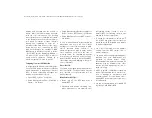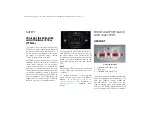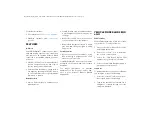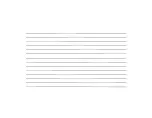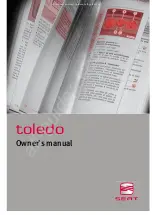
different from day to day or previous model
years. Clicking, ticking, or light knocking is
normal and will change from day to day, as
the engine breaks in, and can vary with
changes in ambient temperature. Clicking
sounds from under the hood shortly after
vehicle shutdown is normal as actuators
such as the EGR valve are cycled. Fuel pump
noise may increase during low speed/light
load conditions when ambient temperature is
above 100°F (38°C), and when fuel tank
level is below 10% which is a normal condi
-
tion of the fuel system and controls strategy.
Diesel equipped vehicles also have an
exhaust after-treatment system to reduce
emissions utilizing a DPF (refer to “Odor” in
this section for further information) and a
Selective Reduction Catalyst (SCR). The
SCR reduces Nitrogen Oxides (NOx) using
the Diesel Exhaust Fluid (DEF) system. DEF
is injected directly into the SCR through a
dosing module. This process will create a
clicking sound and at times, will make noise
even with the vehicle shut off. This is normal
as the DEF dosing module is purging DEF. If
at any time the check engine light is on,
please visit an authorized dealer.
Fluid Leaks
Diesel engines and new vehicles use
assembly / anti-corrosive lube to assure the
correct assembly torque on fasteners and
prevent corrosion. Some areas may appear
damp like a fluid leak but it is typically
residual assembly lube and is normal.
Dealers make every effort to remove residual
fluids during vehicle pre-inspection. If at any
time fluid is found dripping on the ground,
please visit an authorized dealer. If at any
time the check engine light is on, please visit
an authorized dealer.
Engine Idle
Diesel engines are equipped with variable
idle speed. Periodically your engine can idle
as high as 1,100 rpm while in Park (P). This
is normal for engine warm up and emissions.
During this high idle mode, the engine will
sound different, this is normal. The engine
will return to low idle if the brake or clutch
pedal are depressed. We recommend not
pressing either pedal unless you are ready to
drive the vehicle as this will interrupt warm
up or emissions strategy. If at any time the
check engine light is on, please visit an
authorized dealer.
Drivability
Diesel engines are controlled by a PCM
(Powertrain Control Module). With state of
the art technology and emissions regula
-
tions, vehicles may perform differently from
one model year to another.
Drivability can also be affected by the
following:
• After-treatment regeneration
• Two footed driving (if brake pedal and
accelerator are pressed at the same time,
you will notice a delay in power).
• Temperature
• Weather
• Wind
• Load
• Altitude
• Gear Ratio
These conditions are considered natural
events and may not be corrected. If at any
time the check engine light is on, please visit
an authorized dealer.
2020_RAM_DJ_D2_QRG_USA=GUID-1D5284C2-ECAF-4FD7-BBA4-B1B8B14D302B=1=en=.fm Page 2





